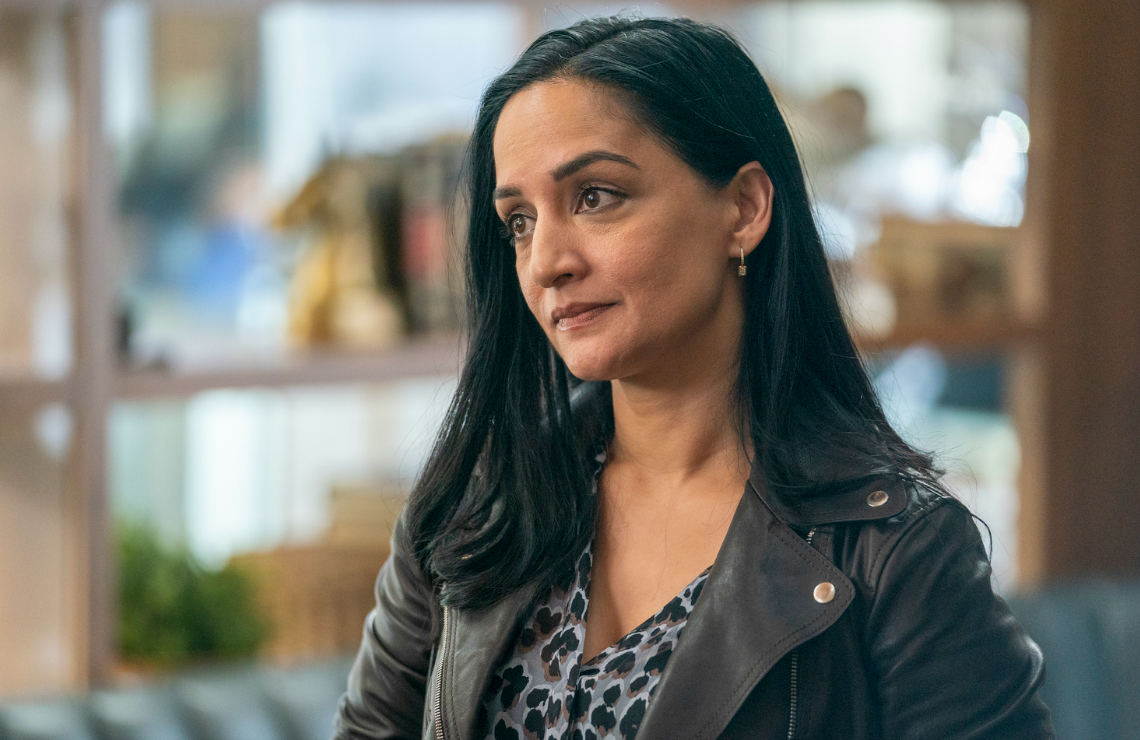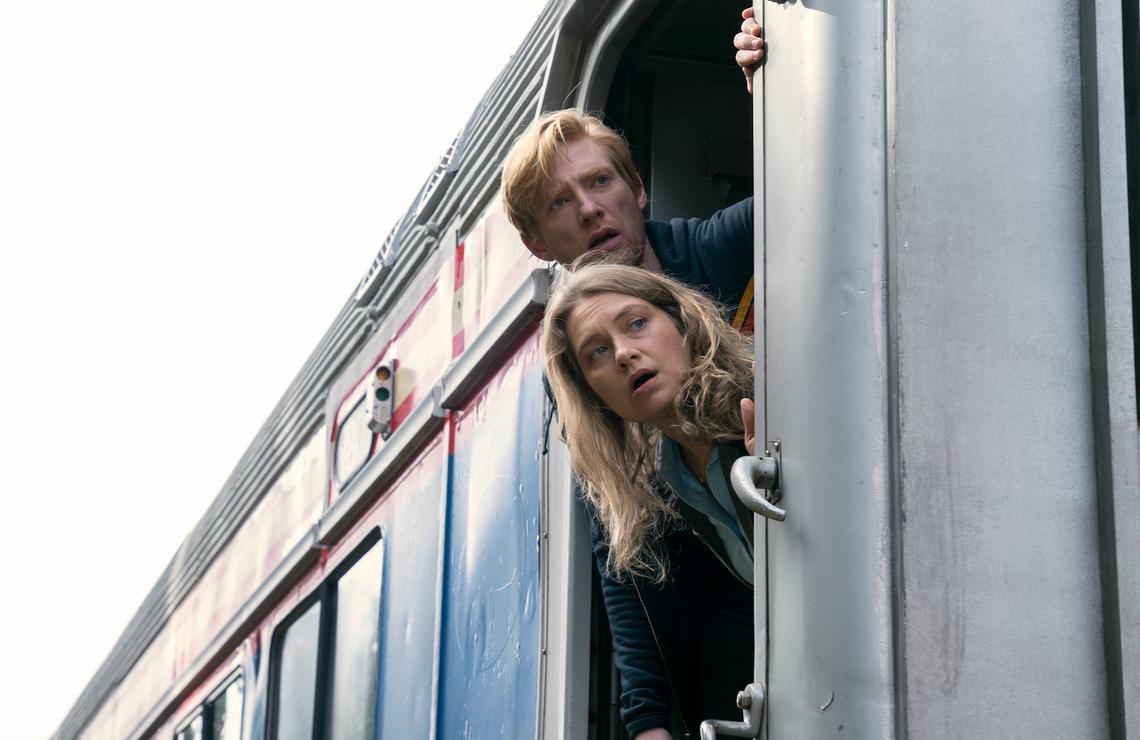Run Wants to Be a Lot of Things, But What Does It Do Best?
-
 Domhnall Gleeson and Merritt Wever in Run. (HBO)
Domhnall Gleeson and Merritt Wever in Run. (HBO)Warning: Spoilers from the first six episodes of Run ahead.
HBO’s Run, which airs its season finale this Sunday, has been a lot of things over the course of its first season. What started out as a seemingly simple show about two ex-lovers running away together has transformed into a dark screwball thriller, complete with an accidental murder and some truly messy attempts to cover it up. Six episodes removed from its eccentric premiere, Run no longer resembles an escapist romance like Before Sunrise so much as it does something more along the lines of, say, Fargo .
That’s a ambitious transformation for any series, especially one still in its first season. But while there have been moments when its output mached its ambitions, there have been other times when the series has missed the mark.

In general, Run felt more like a high-concept romantic comedy in its earlier episodes than it did a thriller or crime story. There were the occasional dramatic twists and turns, like Billy (Domhnall Gleeson) discovering the existence of Ruby’s (Merritt Wever) family, or Laurence (Rich Summer, completing his "bad tv husband" trifecta) canceling all of Ruby’s credit cards. Both of those moments helped the series establish some emotional stakes for the characters to grapple with, but most of Run’s first few episodes were dedicated to the bumpy rekindling of Billy and Ruby’s connection, and that meant they were the installments that relied most heavily on the screen chemistry between Merritt Wever and Domhnall Gleeson.
Two proven, capable performers, Wever and Gleeson have risen to the demands of their respective roles. As the more mysterious of the two characters, Gleeson has managed to sell the charming, tactless, and shady sides of Billy well, while Wever has achieved the same level of authenticity in portraying Ruby’s frustration and guilt, along with her reckless desire for excitement.
But where Run has excelled in showcasing the complex, passionate bond between its lead chatacters, it has fallen short in its plotting and tonal consistency. Case in point: Run never established Fiona (Archie Panjabi) as an interesting or formidable-enough character for us to be really worried when she stole Billy’s bag of money, or to care when she (accidentally?) fell to her death offscreen. The latter moment is when Run’s tonal problems came into the foreground.
On paper, Fiona’s death seems like something pulled straight out of a black comedy by the Coen Brothers, only Run didn’t handle the moment with the same kind of absurdist skill. Where her death should have kicked the show’s pace into high gear, it slowed things to a standstill, with Billy and Ruby spending the rest of the episode, and the entirety of the next episode, stuck in the same town, arguing over whether or not they should call the police.
Their reactions to Fiona’s death may have felt emotionally authentic, but they were undercut by the shallowness of Fiona's character and the ridiculous circumstances surrounding the entire situation. The introductions of three comically offbeat characters shortly after, including Phoebe Waller-Bridge's taxidermist, who drives around at night looking for roadkill to stuff, and two socially awkward police officers, only further illustrated Run’s inability to commit to a genre or maneuver conflicting tones.

It’s totally possible for Run to juggle comedy and drama, but in order to do that, the show needs to commit to a style in order for it to feel like a cohesive, fully-functioning series. It either needs to embrace the total absurdity of its murder subplot, or return to the more realistic, emotionally-grounded human interactions of its earlier installments. Heading into the season finale, the series has yet to evoke the kind of grand tragedy needed to convince viewers of the impact of Fiona’s death on Billy and Ruby’s relationship.
For that matter, all the times that Run has managed to achieve a real emotional cohesiveness in its storytelling have occurred when it focused solely on Billy and Ruby’s romance. Its third episode, in which Billy and Ruby pause their train journey to spend a day together in Chicago, remains the show’s most effective and emotionally involving to date because of the time it dedicated to finally bringing the characters together. Wever and Gleeson are both such charismatic performers, Run could easily dedicate entire scenes to the characters just opening up to each other, without having to worry about losing the audience's interest.
In other words, Run is usually at its best when it’s at its most flirty, when it embraces the romance and the comedy present in Billy and Ruby’s relationship. Domhnall Gleeson and Merritt Wever have the kind of chemistry that most shows (or films for that matter) could only dream of, and Run needs to start taking better advantage of it. Should it get renewed for a second season, we can only hope that Run's creative team uses the opportunity to return to the tone of the first three chapters, or at the very least, lean into the absurdity of the show's darker elements.
The season finale of Run airs on HBO Sunday May 24th at 10:30 PM ET.
People are talking about Run in our forums. Join the conversation.
Alex Welch has written about television and film for TV by the Numbers, IGN, The Berrics, Paste Magazine, Screen Rant and GeekNation. Follow him on Twitter @alexrwelch.
TOPICS: Run, Archie Panjabi, Domhnall Gleeson, Merritt Wever, Phoebe Waller-Bridge, Vicky Jones